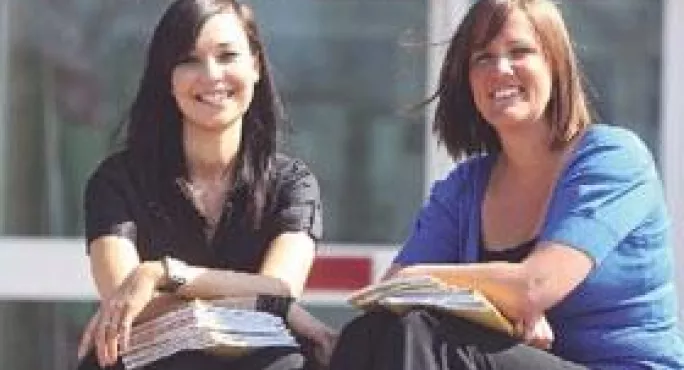Fast-track to headship proves a hit

A fast-track scheme for aspiring secondary heads has proven so popular that it could be extended to primaries, TES Cymru has learnt.
In the past two years, 90 teachers in their first seven years in the job have signed up to the Developing Leaders Wales programme, run by iNet, a London training provider.
Candidates must be able to come up with - and try out - new ideas. On the course, they are taught to delegate and work smarter, not harder, as leadership becomes a more complex and demanding role.
Hannah Michael, 25, of Cardiff High, began the course as a newly qualified teacher in 2007 with a colleague, Sara Davies, who was in her first year. Both have already become heads of department.
But the course also caters for older candidates. Jon Evans, 43, in his fourth year of maths teaching at Eirias High in Colwyn Bay, was asked by his headteacher to apply.
“I’m in my forties and teaching was a career change for me,” he said. “I’m going to go as far as I possibly can in the time I have. I’ve been exposed to research, ideas and people I don’t think I would have seen otherwise.”
The course teaches candidates about the latest developments in Welsh education, including the school effectiveness framework, the Welsh bac and 14-19 learning pathways. They also carry out their own research and must launch their own innovative headship project.
Dyfed Williams, another Eirias High teacher, chose to extend the school’s peer-mentoring project.
“I’ve had to convince staff and pupils that it’s not a flash-in-the-pan idea. The whole school had to be behind it,” he said.
The 26-year-old Welsh language teacher said: “The head was aware that I really wanted to progress. When opportunities come up, I’ll certainly go for them, and within the next five years I want to be in a senior management position.”
Teachers’ unions have warned of a headship crisis and say the pressure of the top job puts off many potential applicants.
But Mr Williams is undaunted and believes the course has prepared him well. “It’s about working smarter, not harder,” he said. “They show us the tried-and-tested strategies, and that sort of attitude gives you the confidence that, if I do this, I’m not going to be as stressed. I think it’s good to develop these skills early on.”
Already there are three heads aged 30 or under in Welsh schools, according to the General Teaching Council for Wales.
Paula Edwards, iNet co-ordinator in Wales and former deputy head at Prestatyn High, said the course was based on the premise that school leadership is constantly changing.
“It challenges some of the traditional views of how leadership has gone in the past,” she said. “These teachers will be faced with new and evolving government situations and a different economic climate.”
But some traditionalists are wary of fast-tracking and believe headship should be left to seasoned teachers. And Ms Michael, of Cardiff High, said not all her colleagues were convinced.
“There’s a positive environment in our school, but you will always have teachers who see things in a traditional way,” she said. “The only thing you can do is be professional and hope you can win them round. But if you have those skills now, there’s no point in waiting until a certain age before you use them.”
With older heads retiring, there is a buoyant market for headships in Wales. More than 80 of the jobs have been advertised this year; in Gwynedd alone, one-fifth of positions are open for this September.
Ms Michael said the nature of the school was crucial. “I’m looking at leadership and management roles, but I wouldn’t go for a particular job just because it had the title `headteacher’,” she said. “The school needs to be an environment of innovation or open to new ideas.”
Meanwhile, all the young leaders on the programme believe the course is improving their teaching.
Ms Edwards, of iNet, said the course was a chance for teachers to be “forensic” about their own schools and teaching methods.
The course can also lead to credits for a masters degree, and the next step for some may be the national professional qualification for headship, which is now a prerequisite for all new heads.
An iNet spokesperson said an extension of the scheme to cover primary teachers was being considered following high demand among secondary teachers in Wales.
Keep reading for just £1 per month
You've reached your limit of free articles this month. Subscribe for £1 per month for three months and get:
- Unlimited access to all Tes magazine content
- Exclusive subscriber-only stories
- Award-winning email newsletters



